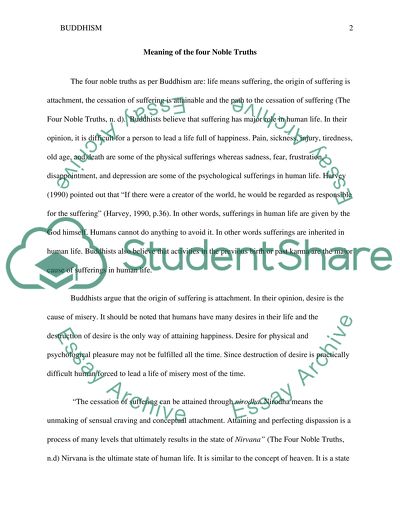Buddhism Essay Example | Topics and Well Written Essays - 750 words - 2. Retrieved from https://studentshare.org/religion-and-theology/1467117-buddhism
Buddhism Essay Example | Topics and Well Written Essays - 750 Words - 2. https://studentshare.org/religion-and-theology/1467117-buddhism.


